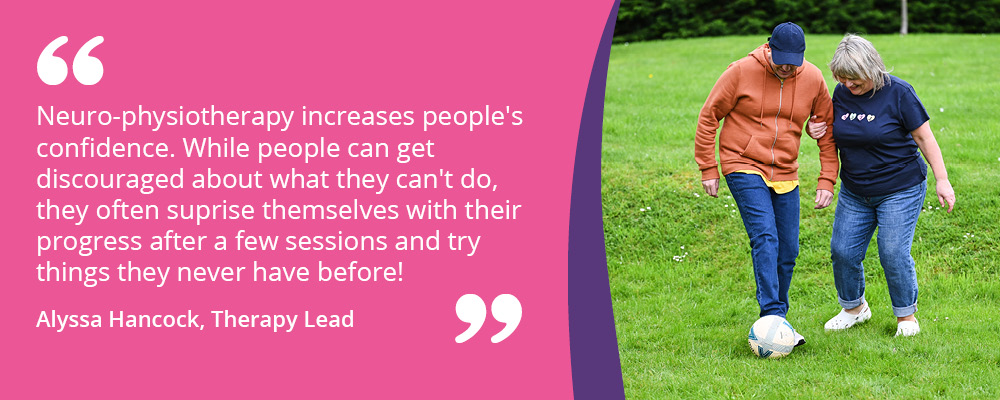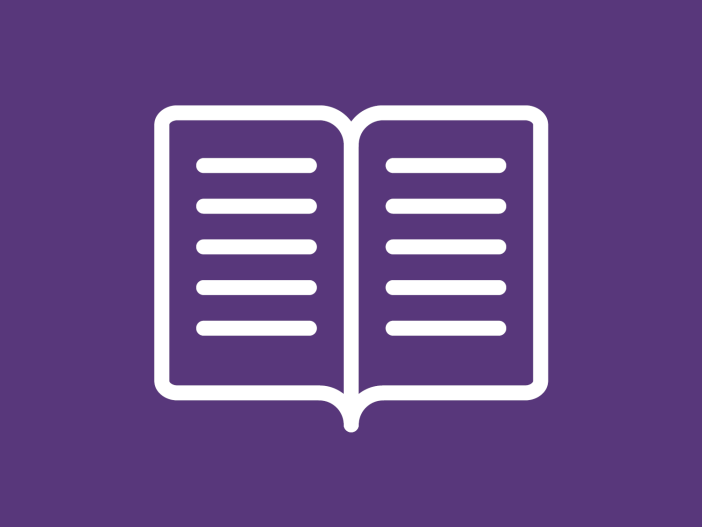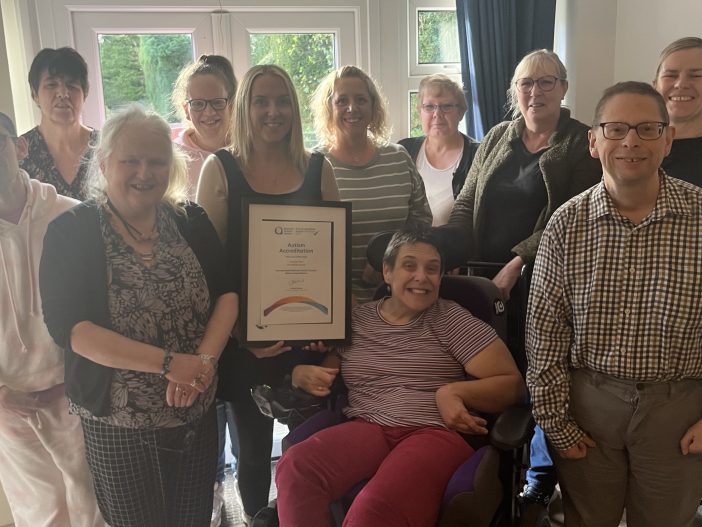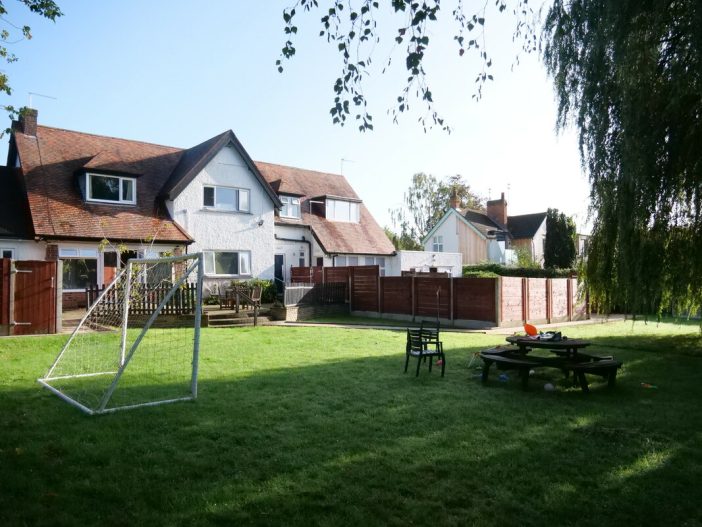How Neuro-physiotherapy supports brain injury rehabilitation
When someone suffers a brain injury, life changes significantly for them and their loved ones. Their injury may have left them with a range of additional needs or disabilities. From mental health to physical changes, a brain injury can affect many parts of someone’s life.
Ensuring someone with a brain injury receives appropriate care and support is therefore essential in helping them regain their independence and return to the community where possible.
Our brain injury rehabilitation pathways use a variety of therapy interventions to support people with brain injuries to achieve amazing outcomes. Based on individual needs, each therapy serves a unique purpose and plays a part in someone’s rehabilitation journey.
As part of our therapy offering, we work with expert neuro therapy professionals to deliver effective rehabilitation for the people we support. And for those with physical disabilities, Neuro-physiotherapy is a key in their rehabilitation pathway.
We caught up with neuro-physiotherapy professional Helen Edwards at Neuro Therapy UK, one of our expert partners, and Therapy Lead at our brain injury service Maeres House, Alyssa Hancock, to share more on the benefits of Neuro-physiotherapy for those with brain injuries.
What’s the purpose of Neuro-physiotherapy for those with brain injuries
Helen: When you are supporting people with brain injuries, the end goal is to support them on their rehabilitation journey, whatever that looks like, so the purpose of Neuro-physiotherapy is to provide techniques to improve physical recovery. Although rehabilitation goals are unique to each person, common goals for physiotherapy include maximising independence, improving mobility, and enhancing mental wellbeing – as they all contribute to enhancing someone’s quality of life.
During someone’s rehabilitation journey, Neuro-physiotherapy can be introduced when the person is out of critical care. They may still be in hospital, or they may have been discharged back to the community or an ongoing care provider, but whatever the setting, we can support them from there onwards.
What are the differences between Neuro-physiotherapy and standard physiotherapy?
Helen: If someone requires Neuro-physiotherapy it’s usually because their brain injury is more complex, involving multiple symptoms, which sometimes includes a person experiencing behavioural issues.
A neuro-physiotherapist will have post-graduate training to perform specialised techniques, which includes the Bobath concept. This is a problem-solving approach that evaluates a person’s movement and physical control following damage to their central nervous system.
This type of therapy can be used in different environments, using a goal or task-specific approach to study the internal (proprioceptive) and external (exteroceptive) area of the nervous system. For example, testing someone’s sight, smell, or sound within an environment and how their brain sends signals to their body to stimulate movement.
As someone progresses along their rehabilitation pathway, they’ll be introduced to more standard physiotherapy movements. These include functional exercises that prepare the person’s body for everyday movements like bending, pushing, and pulling. People further along in their rehab can also benefit from strength training, that can be delivered by a personal trainer or Support Worker.
How does a Therapy Lead work alongside a Neuro-Physiotherapist?
Alyssa: My role at Voyage Care helps people with brain injuries achieve their goals and I’m usually involved in the process from when they arrive at one of our services.
Before that, they usually have an initial physical assessment with a Neuro-physiotherapist. Following this, a rehabilitation plan is created detailing the person’s individual goals. These could be physical goals like walking independently or more functional goals such as cooking a meal.
Every person is different and will need a comprehensive assessment to establish exactly how physiotherapy might support their overall goals.
From that point onwards, a Therapy Lead, like me, is responsible for ensuring they are working towards their goals on a daily basis. This can include completing prescribed exercises from the Neuro-physiotherapist, or doing other activities such as local walks, cooking a meal, or completing a weekly shop. Functional activities like these encourage physical movement, supporting the individual to use movement naturally and in everyday scenarios.
After someone has been with us for 12 weeks, the support team and therapy professionals get together to review their progress. This helps us to understand if any changes are needed to the individual’s therapy offering.
At Voyage Care, we take a collaborative approach to this, with external Therapists and Therapy Leads working very closely together. The person we support is empowered to provide input on their goals and whether they want to set new targets or change things and our two functions work together to support people to achieve the goals that are important to them.
Can Neuro-physiotherapy support mental health during rehabilitation?
Helen: Mental health conditions can be triggered from both the physical effects of a brain injury, and the emotional impact. Neuro-physiotherapy can have a positive effect on someone’s mental wellbeing too.
The exercise and movement involved with Neuro-physiotherapy can contribute to improving mental health after a brain injury. Exercise releases feel-good hormones which helps with improving mood, anxiety, concentration, and confidence.
Alyssa: Absolutely, Neuro-physiotherapy is a big confidence-builder when someone is recovering from a brain injury. When someone begins to see how Neuro-physiotherapy is enhancing their recovery, they gain confidence and in turn, their mental wellbeing improves too.

How do we empower people to positively deal with challenges or setbacks?
Alyssa: Frustration is one of the common challenges we see when someone begins their rehabilitation journey. When they start Neuro-physiotherapy, they often become frustrated they can no longer do something they used to find easy. This leads to them feeling dejected, which has a negative effect on their mental health.
Sometimes, setbacks can also trigger feelings of frustration. A person recovering from a brain injury will most likely encounter a setback at some point, so having a knowledgeable support team around them is vital to getting them back on track.
In this situation their support team would reinforce how much they have achieved and how far they’ve come in their own journey. Giving the person an opportunity to communicate what they’d like to work on, is important when getting someone past a setback.
Low engagement is another challenge that can arise during a person’s brain injury rehabilitation recovery. In this scenario, our support teams incorporate the skills being learnt at physiotherapy sessions to other activities, making the environment feel different. For example, they may opt for activities like getting out in the community for a walk, playing a game, or making a meal.
Often, taking sessions into more relaxed, natural environments supports progression. Everyone’s unique and some people don’t connect to having physiotherapy in a therapy room. Venturing out into social settings might be more natural to them and will give them more enjoyment. This helps their engagement levels and positively impacts their outcomes.
Find out more about our specialist brain injury support!
To learn how our specialist brain injury support can help you, a loved one, or a client, fill out our simple enquiry form and a member of the team will be in touch.

 Information
Information 

